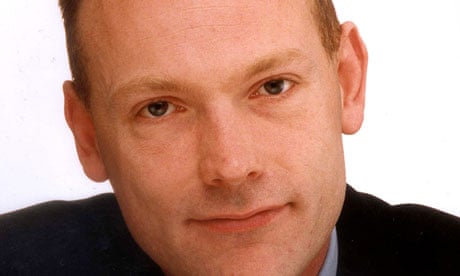Ben Emmerson QC has been watching a lot of French movies in the evenings recently – without subtitles. The favourite to become Britain's next judge at the European Court of Human Rights (ECHR) is polishing up his linguistic skills ahead of a vote in Strasbourg.
One of the job's requirement's is a "passive knowledge" of a second European working language. "I have sufficient working knowledge of French. I went though a Foreign Office test," he says. "But I was informed I needed to brush it up here and there. So I'm watching a lot of French films without sub-titles and have had formal tuition."
Emmerson, 48, is a founding member of Matrix Chambers in Gray's Inn, central London. The legal powerhouse includes Cherie Booth QC, the former Director of Public Prosecutions Lord Ken Macdonald QC, Professor Philippe Sands QC, the privacy expert Hugh Tomlinson QC and scores of other experts.
In shirt-sleeves and drinking a can of Red Bull energy drink in a chambers conference room, Emmerson talks between preparing for his current case – representing the property tycoon Vincent Tchenguiz – and shuttling between embassies across London explaining his recent UN report on improving the rights of victims of terrorism.
Emmerson is currently the United Nation's Special Rapporteur on Counter Terrorism and Humans Rights. Terrorism and how it is tackled has occupied a significant part of his legal career.
"Respect for human rights in counter-terrorism is a measure which protects the rights of victims," he explained. "The evidence is absolutely clear that use of rendition and water-boarding has spread support for Islamist groups who have perceived themselves to be the targets of attack.
"Human rights-abusive policies increase the presence of terrorism. You only have to look at the recent past in Northern Ireland where internment without trial turned the IRA from a [group] with little support into a much larger organisation."
Fair and public trials are vital, he argues. "A key demand for victims of terrorism is to be able to participate, to watch justice being openly and publicly done and to have the cathartic experience of seeing who was responsible for maiming them or killing members of their family. Terrorism will not be defeated by security alone."
His report called for automatic compensation rights for victims of terrorism and a Day of Remembrance for victims of terrorist attacks around the world.
In 2003, Emmerson represented Abu Qatada, the Islamist cleric – along with a number of other Belmarsh inmates – at a hearing of the Special Immigration Appeals Commission arguing that they should not be detained without charge or trial. That professional association has been used by one tabloid to question his credentials.
Given such a high-profile caseload, why would Emmerson want to swap the bar for the bench? "There comes a time when the demands of partisan advocacy prevent you from looking at a legal problem with an eye to both sides of the argument," he explains.
"When you are an advocate you read the material as though you had a colander over you eyes and head. You are looking only for certain kinds of material from which you can build an argument. Having an opportunity to read both sides of an argument, you no longer look at just parts of the material. I have done my stint at the coalface of the bar."
Emmerson dismisses talk of the UK withdrawing from the European Court of Human Rights. "I don't think there's anyone serious within government who suggests that as a real possibility," he says. "It can't happen. Being a member of the Council of Europe requires being a signatory of the European Convention of Human Rights. It's a mandatory requirement for membership of the European Union."
He points out that the key legal doctrine known as the margin of appreciation, which allows individual states to interpret certain convention rights differently according to their national traditions, was invented by ECHR judges.
Both the prime minister, David Cameron, and the justice secretary, Ken Clarke, are enthusiastic advocates of such legal flexibility when defining the relationship between Strasbourg and the UK government.
"There's a margin of appreciation for qualified rights such as freedom of expression or freedom of religion to be [viewed] ... proportionately," he adds. "There's no margin in questions of forced labour, torture or the right to a fair trial."
Emmerson has many prominent supporters. Lord Pannick QC, the constitutional expert and cross-bench peer, said: "Ben is a first-class candidate. He has a very strong reputation in the field of human rights, as an author on the subject and as a practising barrister.
"He has also sat as a judge for the international criminal tribunals for Rwanda and the former Yugoslavia. The UK has in the past been critical of some of the appointments made by other states to the ECHR. If we are to energise other states to appoint judges of distinction then we ourselves must adopt that practice. Ben is a candidate of a very high quality."
Emmerson's resonant voice may command courtroom attention but he rubbishes the frequently reported fiction that he was the model for Mark Darcy, the gruff human rights barrister in the bestselling novel Bridget Jones' Diary. "I was mortified by it," he said. "It's not true. I have never met Helen Fielding [the author]."
